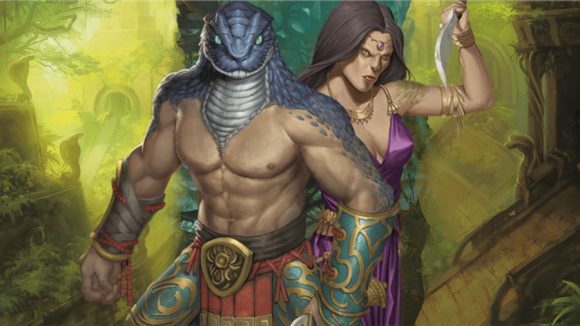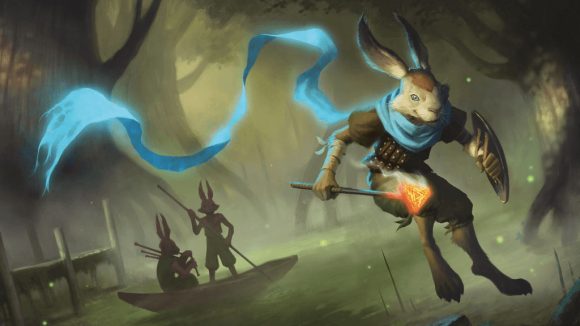Following the release of a raft of D&D errata documents earlier this week, which outlined several changes to the game’s implementation of alignment and racial traits, Wizards of the Coast executive producer and head of D&D Ray Winninger has released an update, clarifying the corrections and further revealing Wizards’ stance on some of the problematic passages found in the D&D 5E sourcebooks.
Winninger’s update largely explains Wizards’ reasoning behind the changes, which included the removal of alignments from playable races and the redaction of lore descriptors that homogenised the psychological conditions and moral leanings of entire races within the game. Winninger says the changes were made to encourage the creativity of DMs and players, and many of his clarifications pertain to how the corrections enhance D&D’s player experience.
In discussing the changes to alignment, Winninger explains that suggested alignments were removed from playable races in an effort to encourage novel player characters. “Since every player character is a unique individual, we no longer feel that such guidance is useful or appropriate,” he says in the update. “Whether or not most halflings are lawful good has no bearing on your halfling and who you want to be. After all, the most memorable and interesting characters often explicitly subvert expectations and stereotypes.”
Similarly, when clarifying the removal of several creatures’ personality descriptions, his update explains the redactions are meant to encourage DMs to populate their campaigns with unique creatures that are not beholden to a “stock personality”. “These paragraphs stood in conflict with that advice,” he says of the removed content. “We didn’t alter the essential natures of these creatures or how they fit into our settings at all. (Mind flayers still devour the brains of humanoids, and yes, that means they tend to be evil.)”.
Finally, on the topic of D&D’s orcs, which have long been criticised for drawing on harmful African stereotypes and essentialising characters’ personalities to their race, Winninger says certain passages were removed and a disclaimer added to Volo’s Guide to Everything in an effort to better promote the multitude of worlds within the D&D universe, which often portray the same creatures in differing ways.
“Since the nature of creatures and cultures vary from world to world, we’re being extra careful about making authoritative statements about such things without providing appropriate context,” he says. “If we’re discussing orcs, for instance, it’s important to note which orcs we’re talking about. The orcs of Greyhawk are quite different from the orcs you’ll find in Eberron.”
However, Winninger stops short of saying that the alterations were made to remove elements of D&D that evoke harmful real-world stereotypes, or avoid the pernicious implications that come from conflating characters’ cultural attributes and psychological conditions. Throughout the update, he couches the errata in terms of enhancing players’ experiences, rather than addressing the racial prejudices that many of D&D’s fantasy races have been based on since its inception nearly 50 years ago.
Further, Winninger’s update continues the D&D tradition of homogenising entire races, in which the majority, or entirety, of a race’s population are described as possessing particular learned behaviours. Winninger says that it’s wrong, for example, to say that most halflings are lawful good, on the grounds that Athasian halflings (a race from the Dark Sun campaign setting) are more likely not. Similarly, he continues to describe non-playable races as uniform groups, particularly emphasising that the D&D team “[hasn’t] decided that beholders and mind flayers are no longer evil”.
Recent years have seen Wizards of the Coast make greater moves to alter D&D’s presentation of race and racial attributes. Last year, Tasha’s Cauldron of Everything introduced expanded character creation rules that offered players the choice to not have their character’s race determine their in-game capabilities and traits.
Larger overhauls may be coming in the next few years, too, as Wizards launch the “next evolution” of D&D in 2024 with a wave of revised D&D core rulebooks.
Source: Wargamer






